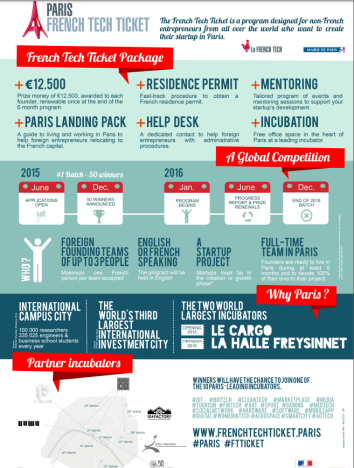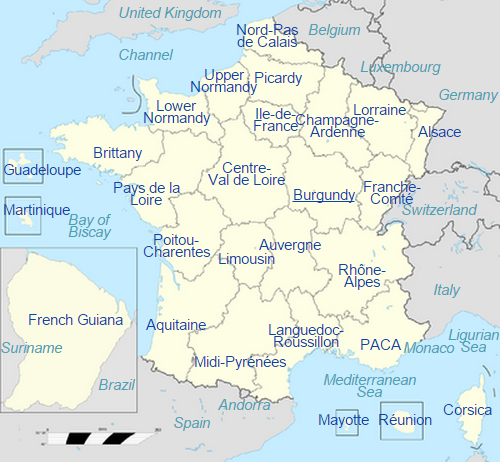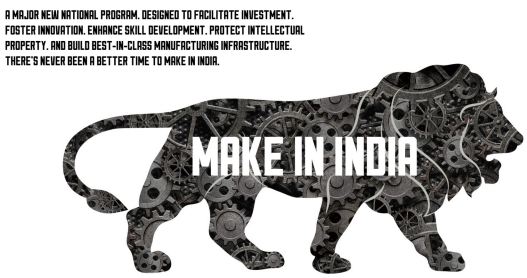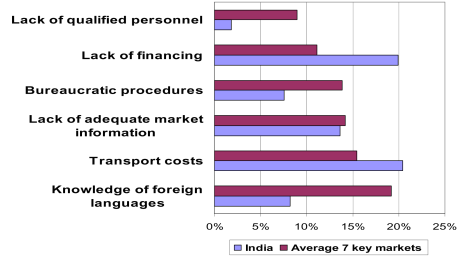#ParisAgreement: The Economic Ripples
 With negotiators from 195 countries with very different agendas and interests involved, a perfect agreement that ushered in a 100 percent clean energy economy on January 1 was never a possibility. What we needed was an agreement that – as Coral Davenport writes in the New York Times –sends a clear signal to markets and investors that the future of energy is in renewables like wind and solar.
With negotiators from 195 countries with very different agendas and interests involved, a perfect agreement that ushered in a 100 percent clean energy economy on January 1 was never a possibility. What we needed was an agreement that – as Coral Davenport writes in the New York Times –sends a clear signal to markets and investors that the future of energy is in renewables like wind and solar.
The Paris agreement passes that test. With this agreement, nations signed on to a goal of keeping warming below 2 degrees Celsius, while pursuing actions to stay under 1.5 degrees and, in not so many words,
reaching net zero greenhouse gas emissions in the second half of the century. The implication couldn’t be much clearer: with governments taking increasingly serious steps to move away from oil, gas, and coal in the years ahead, demand will slowly decline. Renewable sources will grow as nations fill in the gap. Already, we’ve seen the price of solar, wind, and battery technologies plummet in recent years. These new commitments can only accelerate this trend right when we need it most. Which means there’s a lot of money to be made in the clean energy sector. If you’re an investor and you happen to like making money, you’re going to take this seriously.
Meanwhile, demand for energy from clean, renewable sources will grow as nations fill in the gap. Which means there’s a lot of money to be made in the clean energy sector. If you’re an investor and you happen to like making money, again, keep an eye out.
Looking at the bigger picture, Sustainable growth and climate responsibility are mutually supportive and intertwined. First, as the report of the Global Commission on the Economy and Climate, ‘Better Growth, Better Climate’, clearly showed last year, there is now much greater understanding of how economic growth and climate responsibility can come together and, indeed, how their complementarity can help drive both forward.

Picture of the GreenPeace operation at the Arc de Triomphe (more here)
A promise to invest US$90 trillion worldwide in infrastructure over the next 15 years has also been concurred upon. Most of this investment will be in emerging and developing economies. Much, but far from all, of it will happen somehow, but we need both better quality and greater scale. Investments in infrastructure are a means to an end. Those ends are embodied in the Sustainable Development Goals.
The scarcity of infrastructure is one of the most pervasive impediments to growth and sustainable development. Going by the fact that the number of city-dwellers will double in the next three decades, infrastructure investment seems like the best way forward. First, they help us to understand the enormous opportunities that we now have in reducing poverty and raising living standards worldwide from the transition to the low-carbon economy. Good infrastructure unshackles and removes constraints to growth and inclusion, while also fostering education and health.
Government-induced policy risk worldwide is, by far, the most important of these impediments, particularly for infrastructure because of the longevity of investments and their inevitable and intimate links to government policy. We should therefore simultaneously fix both the failures in government policy around infrastructure and the financial system.
Remember, this is all about development and growth. This is about the two defining challenges of our century: overcoming poverty and managing climate change.
If we fail on one, we will fail on the other.
References:
Your Startup In Europe? The Time Is NOW!
Budding entrepreneur? Dream of your company office in the heart of the European extravaganza? The land of wine and cheese is now opening its doors in a whole new dimension:innovation. If you dreamt of sipping vin rouge right across the Eiffel while making conversation with many other crème de la crème tech enthusiasts, the time couldn’t have been better. As a spectacular initiative which will most certainly boost #FrenchTech and the European innovation bid, France has launched French Tech: a new entrepreneur visa package for foreign entrepreneurs. This new package enables foreign entrepreneurs to get a work visa, a $14,000-$28,000 grant (€12,500-€25,000) for each team member, free office space in a Parisian incubator, administrative assistance, and many other advantages.
Every six months, 50 entrepreneurs will be awarded this French Tech Ticket and will have the chance to work closely with leading French incubators that will provide them with mentoring, fundraising strategies, expert advice, and pitch practice.
To be eligible, you’ll have to be part of an early stage start-up with plans to develop the business in France. You can have up to three people in your team (with only one French citizen allowed per team), speak English fluently, and be able to relocate to Paris for at least 6 months.
The first batch will start the program in January 2016. The first round of applications closes on September 15th2015.
For more information, refer to the website: http://www.frenchtechticket.paris/
Touché, the timing could not have been better 😉
Want to expand business internationally? Choose France!

Source : http://defwalls.com/
France has always been considered a dream destination for culture, arts and heritage. It is also one of the richest and most developed countries in the world. Many entrepreneurs move to Europe to leverage the financial opportunities and live the lifestyle that it provides. France is the second richest rich country in Europe. Moving your business here provides you with many benefits, but also puts forth challenges that you might not have had in your home country . What if you want to do business in this country? How supportive are they for business ventures? What is the tax scene? What is the level of governmental support? In this post we will examine the key factors for starting or expanding business in the land of wine and cheese.
First we will go through most economically significant regions of France and their major thriving sectors, division of Businesses in French system, France Visa introduced for Entrepreneurs, the Funding scenario for startups, and finally the Tax benefits for Startups as well as the government support are discussed.
Paris is one of the most sought after hub for industries, but there are also many other locations in France which are beaming with economic and startup activities. Every region has its own economic identity.
Economically most prosperous region is Paris, also known as Île-de-France, based on highest per-capita in the country. It produces almost 30% of the country’s gross domestic product (GDP). With a GDP of 552 billion Euros representing 5% of the European Union’s GDP. It is the second leading global location (and 1st European one) for the 500 largest international companies. 720,000 industrial, commercial or services companies are based there [1]. The regional economy is shifting towards high-value-added service industries (finance, IT services etc) and high-tech manufacturing (electronics, optics, aerospace, etc) [2].
The second most prosperous region in France is Rhône-Alpes which comprises of cities like Lyon( the second-largest metropolitan area in France after Paris) and Grenoble. This region is one of the four motors of Europe [3]. It is the 6th most prosperous region in whole of Europe. This region has put its money on the service sector, which now provides most of its employment (56% of private sector jobs). Industries flourishing are light engineering and high-tech, mechanical engineering in the area of Annecy, and precision machining in the area of Cluses. Other prominent services include nanotechnology in Grenoble, optic and design in Saint-Etienne, and tourism with the Alps in Lyon, Grenoble and the Ardèche . This region also serves as a prominent educatoinal hub, with major universities in Lyon, Grenoble and Saint-Etienne. The area of the region that lies close to Switzerland has an economy linked to that of Geneva. This area forms a hinterland for the Geneva hub [4].
Economically the is the third most important region in France is Provence-Alpes-Côte d’Azur. The important cities are Marseille (administrative capital city of the region), Nice, Toulon, and Aix-en-Provence. The region’s economy is dependent on tourism but also a majority of its economy is dependent on coastal activities. The region is also in the lead when it comes to innovative sectors such as high technology, biotechnology and microelectronics. Education for its part is well developed with various universities, international schools, preparatory classes for specialist university courses, engineering and business schools. Sophia Antipolis is a technology park northwest of Antibes and southwest of Nice. It primarily has companies in the fields of computing, electronics, pharmacology and biotechnology. It houses the European headquarters of W3C and the European Telecommunications Standards Institute.
Other than Paris, the startup ecosystems are being developed in many cities around the country like Grenoble, Lyon, Toulouse, Marseilles, Bordeaux, Nantes, Lille etc. Every city has its own specialties ranging from digital to biotech to finance hubs [5].
There are several ways to do business in France. You can either start your own business, buy an already existing business, invest in equity or do a merger. French businesses are divided into categories of activities:
- Commercial/sales – buying and selling products
- Artisanal/trades – creating, making, fitting and selling products
- Freelance professions – pure service providers
- Agricultural
All of them have different registration process and legalities. Taxation will also vary depending on type of your business [6].
Entrepreneur’s Visa in France
The French government wants the expansion of business ecosystems in France. France makes its best efforts for not discriminating between French national and foreign nationals. At Le Web, the economic minister, Emmanuel Macron, made statement about support that the government wants to provide to new businesses. “To be clear about the French momentum, we are accelerating,” he said. “They key question for us is how to accelerate, and how to help create new businesses. … My job is to be sure that in the coming years we create thousands of new businesses to replace the old ones. … My job is to protect people and allow them to be innovative and take risks.”
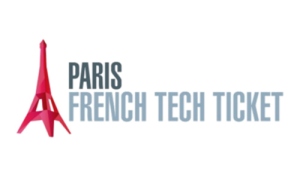 Government has launched an initiative called “La French Tech” [7]. It is for all the people working for or with French startups , in France or abroad. This ecosystem is said to be made up of entrepreneurs, and also investors, engineers, designers, developers, associations, bloggers, media, big companies, and government agencies. All the players who are working towards startups’ growth and international promotion. As a part of this initiative in December 2014, the government announced it had created a $250 million fund to invest in startup accelerators across the country. It seeks to support nine startup ecosystems around the country.
Government has launched an initiative called “La French Tech” [7]. It is for all the people working for or with French startups , in France or abroad. This ecosystem is said to be made up of entrepreneurs, and also investors, engineers, designers, developers, associations, bloggers, media, big companies, and government agencies. All the players who are working towards startups’ growth and international promotion. As a part of this initiative in December 2014, the government announced it had created a $250 million fund to invest in startup accelerators across the country. It seeks to support nine startup ecosystems around the country.
In June 2015, France introduced a visa package called the French Tech Ticket. With this package, foreign entrepreneurs could get a work visa, a $14,000-$28,000 grant (€12,500-€25,000) for each team member, free office space in an incubator in Paris as well as an English-speaking administrative advisor. It is limited to 500 applications for now, teams who want to apply need to be co-founders, with at most three co-founders and one French founder who lives abroad. They need to work on a startup, speak English and stay at least six months in France. The French Government is partnering with the city of Paris for the incubator part of the package. Every six months, around 50 people will be awarded this French Tech Ticket — the first batch will start in January 2016.
France has also introduces Talent Passport to make it easier for skilled professionals and workers to come to France. Holders of the “Talent Passport” and their families will be offered four-year renewable visas. The initiative covers seven categories – highly qualified workers; investors; qualified young graduates; researchers; foreigners with an international reputation in science, literature, intellectual work, education or sports; and artists. The government plans to issue 10,000 foreign nationals with a ‘Talent Passport’ every year.
Funding in France
Startup incubators are a public and private initiatives. There are incubation centers from Orange, Air Liquide, Credit Agricole, Innovation village in Paris and many more. There are many venture coaching clusters, like Genopole, Agropole, Technopôle which provide technical and financial support specific to your sector.
Government is providing tax credit called Crédit d’Impôt Recherche (CIR) for companies spending at least 15% on RnD. This has resulted into companies which do RnD in France and Fundraising from abroad [8]. France is making conscious efforts to improve its fundraising scenario. Bpifrance has set up an 8 billion Euros fund to be invested by 2015 for late-stage growth companies within France [9]. The Venture Capitalist scenario is not as bleak as it has been projected by media. An article by LSC breaks myths on success of VC in US over Europe [10]. A lot of public money has been injected into VC firms or directly into VC-like public institutions over the past few years. France Digitale recently proposed to divert a tiny amount of life insurance assets — 0.2% to 0.3% — to venture capital; it could almost double French VC firepower, at no cost to the French state.
New businesses are granted exemption of the “local economic contribution” (contribution économique territoriale) tax in their first year, and possibly second year by local decision. This region you operate from is quite important in France, since many taxes and funding grants vary from region to region.
Interest-free loans from public-private partnerships are available through different organizations (France Active, Initiative France, Réseau Entreprendre, ADIE, NEF, …), generally jointly with the region and the department. They come under different names (Prêt d’honneur, Prêts solidaires, NACRE, …) with a primary purpose to support entrepreneurs and enable them to further obtain access to bank loans. Generally a leverage is provided by banks: i.e., for EUR 1 obtained with these loans, the entrepreneur will obtain EUR 7 from banks. They are also provided customized business assistance during the first years of the business [11].
Startups can also leverage crowdfunding. Crowdfunding now has legal framework since October 1st 2014 in France. Two different regulated status have been created (respectively conseiller en investissements participatifs and intermédiaire en financement participatif), depending on the activity carried out by the platform: equity investments or loans.
There are over 250 government and EU funds that are available for startups in France, across all the economic sectors. These funds and grants are listed here in the France guide by JustLanded [12].
Tax benefits for businesses
For business, France is not the typical socialist country which eats up all your profits. There are many support structures provided by the government and organizations. To accelerate the relatively slower growth of French economy, government has proposed many benefits for investors and businesses in term of tax . According to government data, in the period from 2007 to 2011 France has seen total increase of 562,000 businesses, as compared to 95,000 in US in the same period and is highest among the G-7 countries. This increase is a result of change in policy by French government in 2009, and introduction of a status called as auto entrepreneur. It reduces the total tax on people who run small business.
When you are running your own company in France, you may be taxed under the personal income tax system (Impôts sur le Revenu, IR) or company taxation system(Impôts sur les Societiés, IS). Other taxes related to trading and VAT are also to be taken care of. The article on tax by expita [13] provides a good insight into the tax structure of France.
A five-year and €2.5 billion ($2.7 billion) program of tax breaks to encourage industrial investment has been announced by France President on April 2015. This tax break is applied to industrial investments that will be made till April 2016. It will allow companies to deduct 140 percent of the value of their industrial investments against their taxable benefits over five years, as well reduce their business taxes. The state-held investment bank is also to step up lending to companies by 2.0 billion euros. The French government has also announced Responsibility Pact which would give €40 billion in tax breaks through 2017. The purpose of this pact is to create more jobs in France.
The legal status of young innovative companies (Jeune Entreprise Innovante — JEI) provides a number of tax and social security exemptions for SMEs given that at least 15% of their costs are for R&D. What’s more, and this is cumulative with the JEI, companies that incur expenses for basic research and experimental development can benefit from a tax credit, the Crédit d’Impôt Recherche (CIR). It gives start-ups a 30% tax credit on their R&D expenses.
There are vast catalogue of tax incentives that favor early stage investments in France. You can figure out which category your business belongs to and then leverage the benefits provided by the government.
As a summary, in France as a business angel investor, when you invest in a startup, you will pay less tax. As an entrepreneur, when you create a company and hire people, you will pay less corporate tax for the first few years.
Points to Ponder
The labor laws are pretty much rigid here. French labor code which imposes to a 10-person company the same obligations as those of a big corporation. Hence it is difficult for entrepreneurs to manage the staffing of the startup. The minimum labor wages are relatively high and they also work less number of hours with respect to other rich European Nations. Also it is difficult to quickly fire the employers if things go bad for the company. The government is somehow making efforts to reform labor laws for small and medium companies, which defiantly has impact on number of employees in French startups [14]. But the quality of Engineers is pretty much high, and are twice less costly than in US.
France is also famous for its Social Security system. Hence it has sponsored health care or plans that makes it convenient for startups. Social Security pays for the healthcare insurance. Entrepreneurship is a risky business. The unemployment benefits here are viewed as safety net in case things go south. It also encourages more people to plunge into the risks of entrepreneurial ventures.
Working in France makes your access to other European markets easier. This gives you a huge market.The wealth is better distributed with respect to non-European countries which gives you a larger customer base. But all the countries have very different markets and culture. There are also differences in government rules and regulations. It is these legal challenges that you need to swim through if you plan to make your startup present across different European countries.
By keeping these factors into consideration, doing business in France is a real good deal!
References:
[1] http://www.france.fr/en/paris-and-its-surroundings/economy-ile-de-france-region-pole-position.html
[2] “L’Industrie en Ile-de-France, Principaux Indicateurs Régionaux” (PDF). INSEE. Retrieved 24 November2014.
[3] https://en.wikipedia.org/wiki/Four_Motors_for_Europe
[4] http://www.regions-of-france.com/regions/rhone_alpes/economy/
[5] http://www.startupnation.com/articles/best-cities-france-american-entrepreneurs/
[7] http://en.lafrenchtech.com/
[8] http://www.rudebaguette.com/2014/08/28/new-paradigm-french-startups-rd-france-fundraising-abroad/
[10] http://personal.lse.ac.uk/axelson/ulf_files/EuroVC_MythsFacts%20v17.pdf
[11] http://accelerating-innovation.co/2014/10/08/shocking-france-is-a-fiscal-heaven-for-startups/
[12] https://www.justlanded.com/english/France/France-Guide/Business/Grants-Subsidies-in-France
[14] https://www.rudebaguette.com/2015/06/13/rudevc-cliff-of-50/
#ExpansionEurope: Focus India
Europe is spreading its wings; and as the previous article suggests, the growth rate for 2015 will hover at the 20 year average of 5.3% a year. This is already quite an impressive prediction, given the recurring meltdowns that certain economies have been facing over the past few years. Much of that sustained growth can be attributed to SMEs, which not only form an overwhelming 99.8% of the 21 million EU enterprises, but have also withstood the test of time. Out of this “Rock of Gibraltar” section of industry, over sixty percent of enterprises are concentrated on the export-import segment. It can thus be led to conclude that a quintessential reason for the sustainment of European growth rests at the hand of the inter-Europe import-export trade segment. Europe has not turned a blind eye to this fact, and continues to support this sector with professional/legal advice and networking opportunities. This has lead to forty percent of these businesses conceding that their international growth has been catalyzed by the the EU support. This growth in most cases is ten percent of the company turnover. The seven key markets of exchange identified are notably China, Russia, India, Brazil, Japan, Ukraine and South Korea. This article will focus on the Indo-European trade nexus.
The support offered by the EU is targeted, bearing in mind the cultural and language aspects which are specific to each country. This is where each of the each of the aforementioned key markets offer individual exotic challenges of their own. Listed below are some of the key challenges for EU SMEs as far as the Indian subcontinent is concerned:
- Finding the right person: India is a diverse market with many players at different levels. While there are providers focalized on a single offering and very good at it, the market is flooded with numerous “Jack of all trades, master of none” businesses as well. Choosing wisely will go a long way in determining the depth of your international footprint.
- Cultural Differences: These exist not only between EU and India, but within India as well. The methodology of doing business is anything but uniform in all the states. This is further influenced by the individual cultures of the individual states.
- Infrastructure not developed in all of the places.
- The legal system is slow and complicated: A standard bottom-up hierarchy which is anything but simple to comprehend means that a tryst with the law is a time-consuming affair.
- Customs Issues
- Awareness of the Indian market in the EU is low.
- Concentration of EU organizations in capital cities like Delhi and Mumbai, leading to duplication of functionality.
Below is a summary of the barriers as seen by EU SMEs for India vis a vis the average of the 7 key countries:
Some suggested reforms in the EU support as far as India is concerned are mentioned as below:
- EU should set up regional offices in different states of India, each oriented to the local methodology of business.
- Financial support should be arranged for EU SMEs desiring to set foot in India: Nearly all the nationalized banks in India have a specialized SME department to cater to the needs of this specific segment. The EU should thus tie up with these banks to allow the local financing of EU SMEs.
- EU should draw up a list of certified professionals which it endorses for their services to SMEs and make this information publicly available on a website so as to benefit SMEs worldwide.
References:
[1] Opportunities for the Internationalisation of EU SMEs [pdf]
[2] Top Barriers and Drivers to SME Internationalisation [pdf]
A big shift in the equilibrium point of Open Source and Proprietary Firms predicted for the next 10 years (Part 1- Qualitative aspects)
We are at a moment in our history at which the terms of freedom and justice are up for grabs. We have an opportunity to improve the way we govern ourselves—both as members of communities and as autonomous individuals. We have an opportunity to be more just at the very core of our economic system. The practical steps we must take to reshape the boundaries of the possible in political morality and to improve the pattern of liberal society, will likely improve productivity and growth through greater innovation and creativity.The time to wake up and shape the pattern of freedom and justice in the new century is now -1-.
In the present section of the report, we present the qualitative background information which help us simulate, via Conectome Tools°, a shift in the industrial equilibrium towards Open Source Intelligence and Technology products developments in the next 10 years. The article is presented as an example of the power of Conectome international market simulation tools when applied to a specific business branch. First, Part 1 will present the qualitative aspects which serves as input parameters for the simulations made. Then, the sequel, Part 2 will present the results, analysis and discussion of this simulations. Finally Part 3, will apply this results to predict the economical impact over SMEs of the Technology Pole: Grenoble, France. This final section will serve as an example of Connectome Tools° applied to model local micro-economical markets. Read More
Trade growth anticipated for 2015 and 2016 #World #Trade #2015 #2016
World trade is expected to grow by a modest 4.7% in 2014 and at a slightly faster rate of 5.3% in 2015
Main points:
- The trade forecast for 2014 has been upgraded to 4.7% from 4.5%, still below the 20-year average of 5.3% (1983–2013). A 5.3% increase in trade is anticipated for 2015.
- Risks to the forecast have eased in developed economies but risen in developing countries, as the end of quantitative easing has increased financial market volatility.
- World merchandise trade grew 2.1% in 2013 in volume terms, very close to the 2.3% increase from the previous year.
- Developing economies trade flows turned negative in the middle of 2013, as exports and imports each fell 1% between the first half and the second. Developed economies staged a modest recovery, as exports and imports rose 1% and 1.5%, respectively, during the same period.
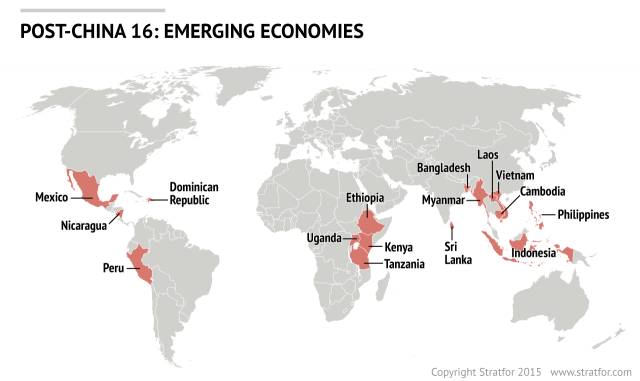
Invest thinking in 2025 #prediction #2025
Overall Perspectives from 2015 to 2025
The European Union entered a crisis that it could not solve and that has increased in intensity.The European Union will not return to its previous unity. The current confrontation with Russia over Ukraine will remain a centerpiece of the international system over the next few years. The Russian Federation is not thought to exist in its current form for the entire decade. We have entered a period in which the decline of the nation-states created by Europe in North Africa and the Middle East is accelerating. China has completed its cycle as a high-growth, low-wage country and has entered a new phase that is the new normal. China will continue to be a major economic force but will not be the dynamic engine of global growth it once was. That role will be taken by a new group of highly dispersed countries we call the Post-China 16. The United States will continue to be the major economic, political and military power in the world but will be less engaged than in the past.
It will be a disorderly world, with a changing of the guard in many regions. The one constant will be the continued and maturing power of the United States — a power that will be much less visible and that will be utilized far less in the next decade.
Economic Trends Europe: Focus MSMEs
This is the first of a series of articles pivoted on the business trends for MSMEs in Europe and their markets, needs and analysis. The following is proprietary material of Connectome Inc. Any republishing should be done with the consent of the authors.
